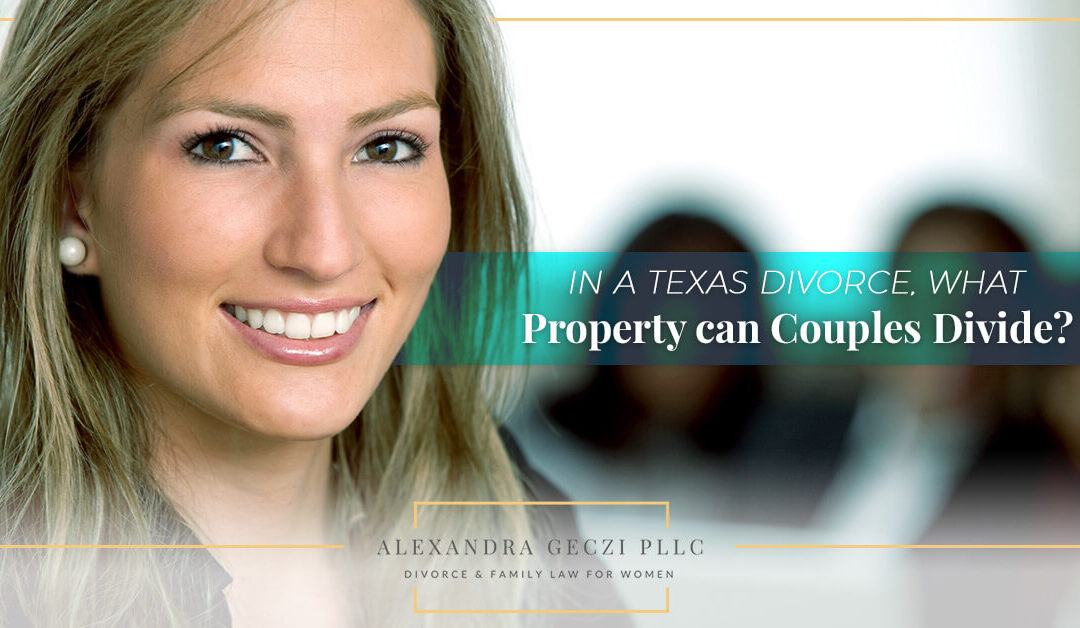
by Alexandra Geczi | Apr 15, 2018 | Uncategorized
Texas is one of nine Community Property states in the United States. This means that any property accumulated during a marriage belongs to both spouses, whether or not they earned the income that paid for the property. In Texas, community property isn’t limited...


